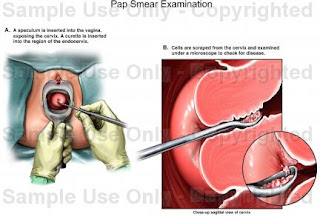Urinary tract infection occurs when bacteria or other infectious organism invades and multiplies in the urinary tract. Women are more susceptible to Urinary Tract Infection (UTI) than men. It is because a women's urethra (tube that connects the urinary bladder to the genitals) is shorter and closer to the anus.
I personally experienced this and it really causes discomfort, first symptom I had was pain in my lower abdomen and lower back, and also leg cramps. The worst symptom will be blood on your urine. It's actually a recurring infection, especially when I drink a lot of Sodas and junk foods.
Other signs and symptoms includes:
Some Reasons why UTI occurs:
Since women are prone to this infection, it would be best for us to do some precautions. Proper hygiene is the first defense, followed by a healthy diet.
 |
| http://www.rnpedia.com/home/notes/maternal-child-nursing-notes/urinary-tract-infection-in-postpartum-women |
Other signs and symptoms includes:
- Urgent need to urinate
- Painful burning sensation while urinating
- Blood or pus in the urine
- Nausea & vomiting
- Cloudy urine
Some Reasons why UTI occurs:
- food allergies
- frequent sexual activity
- using certain types of birth control
- suppressed immune system
- undergoing menopause
- blockage in the urinary tract
- having urinary tract abnormalities
- using a catheter to urinate
Since women are prone to this infection, it would be best for us to do some precautions. Proper hygiene is the first defense, followed by a healthy diet.

